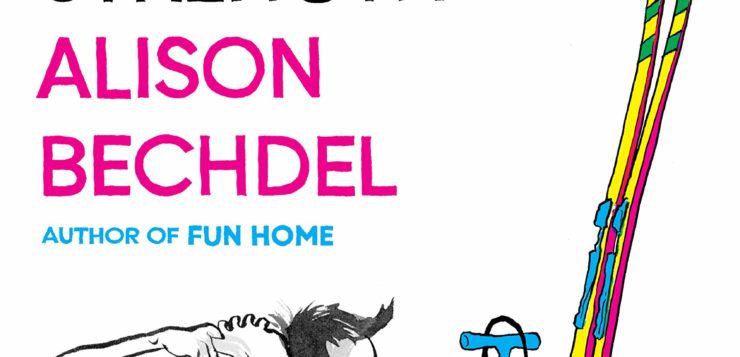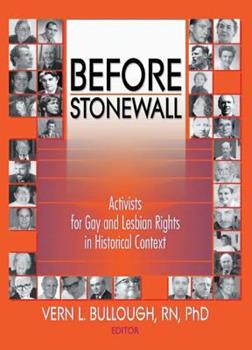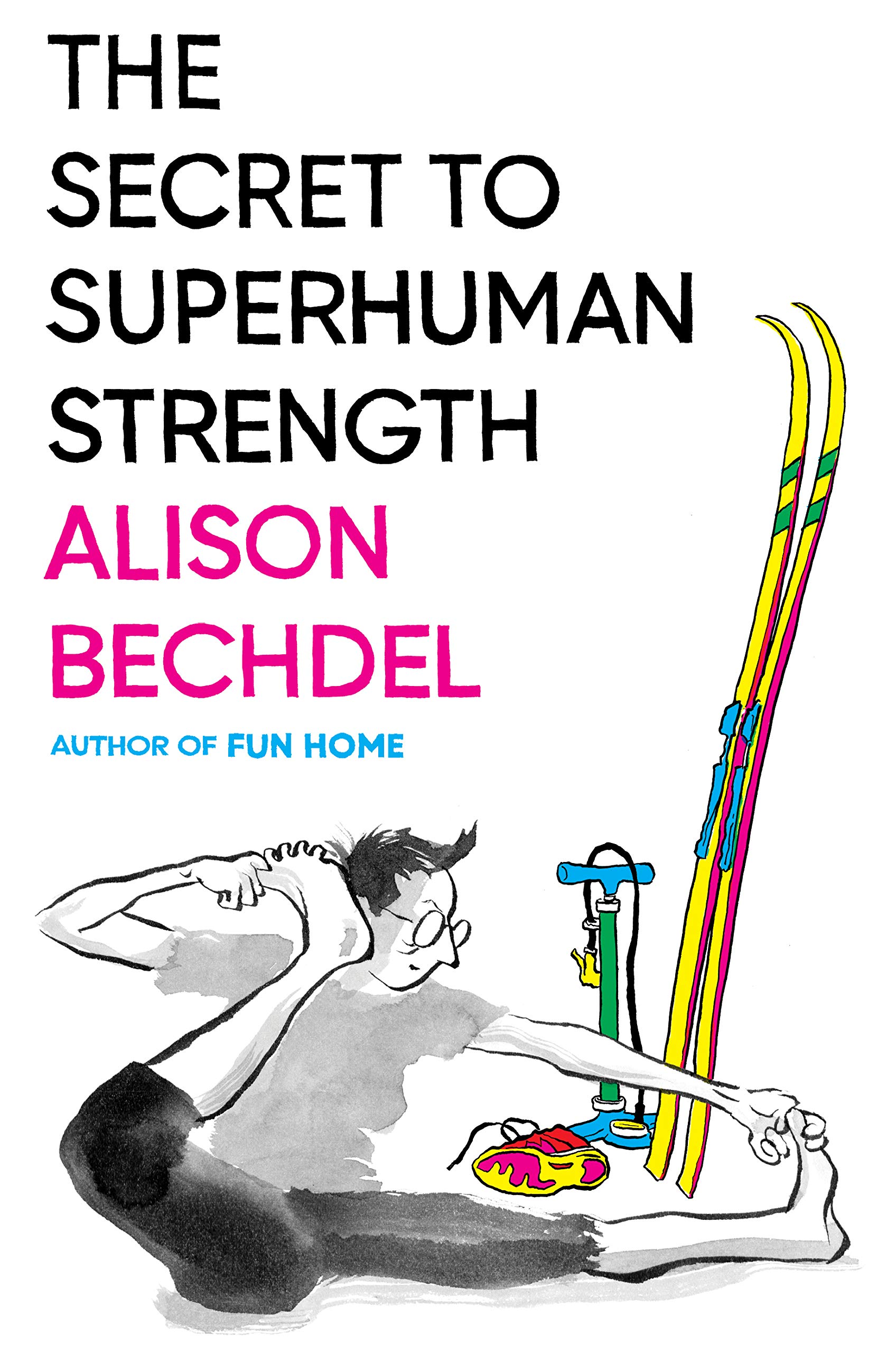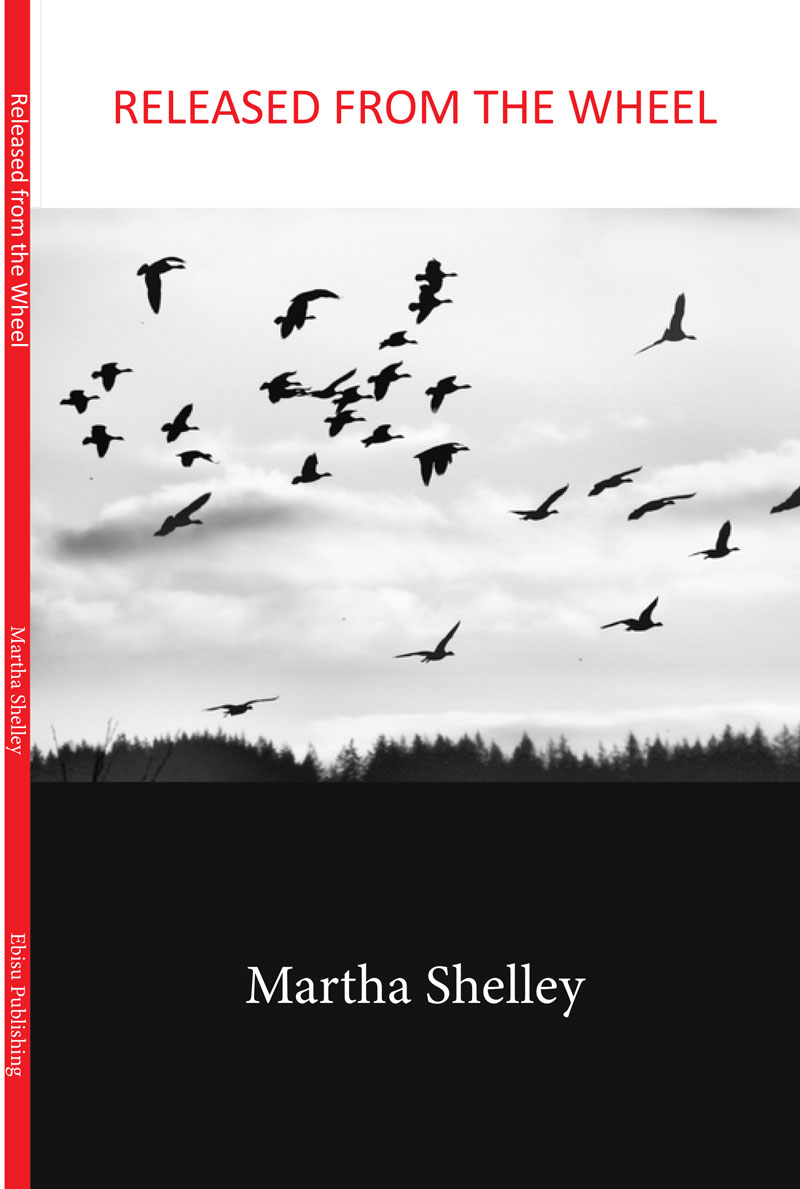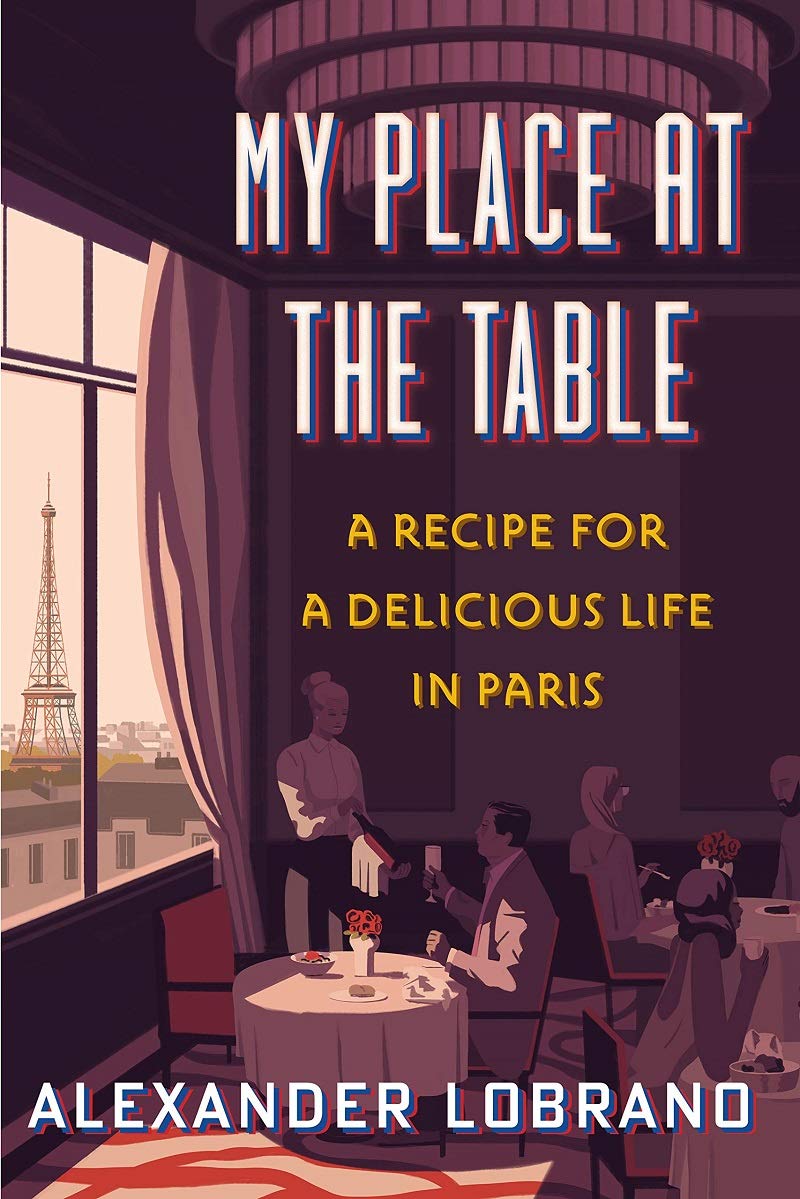 MY PLACE AT THE TABLE
MY PLACE AT THE TABLE
A Recipe for a Delicious Life in Paris
by Alexander Lobrano
Houghton Mifflin. 256 pages, $27.
The roots of Paris-based food critic Alexander Lobrano’s career can be traced to when he was in second grade, fulfilling a class assignment to write about a “favorite thing.” Lobrano’s essay was titled “The Very Best Sandwich.” It was a BLT; he preferred rye bread to white, and suggested that iced tea would make a good accompaniment. Lobrano maintained an avid interest in food writing throughout his young years, even during a summer spent crossing the country in a Boy Scout caravan, at the end of which he learned that all he really wanted to do was “go to different places and eat, and then write it all down.”
Originally from Westport, Connecticut, where he was the oldest of four children in a cultivated, well-off family, Lobrano endured homophobic remarks and abuse during his early years. By the mid-1980s, he’d found work in the editorial world and soon parlayed his writing talent into a job at the Paris branch of Women’s Wear Daily, where he was hired as menswear editor. In his previous travels, he’d fallen in love with Paris and knew he had to live there. In between European boyfriends, serious dining out, and the pursuit of a deep understanding of French gastronomy, he became a successful food critic, eventually becoming the European correspondent for Gourmet magazine (now defunct). This is a charming and always fast-moving memoir with some great gossipy anecdotes about fellow food writers and chefs. Lobrano currently maintains an active website that’s full of entertaining food criticism.
Martha E. Stone
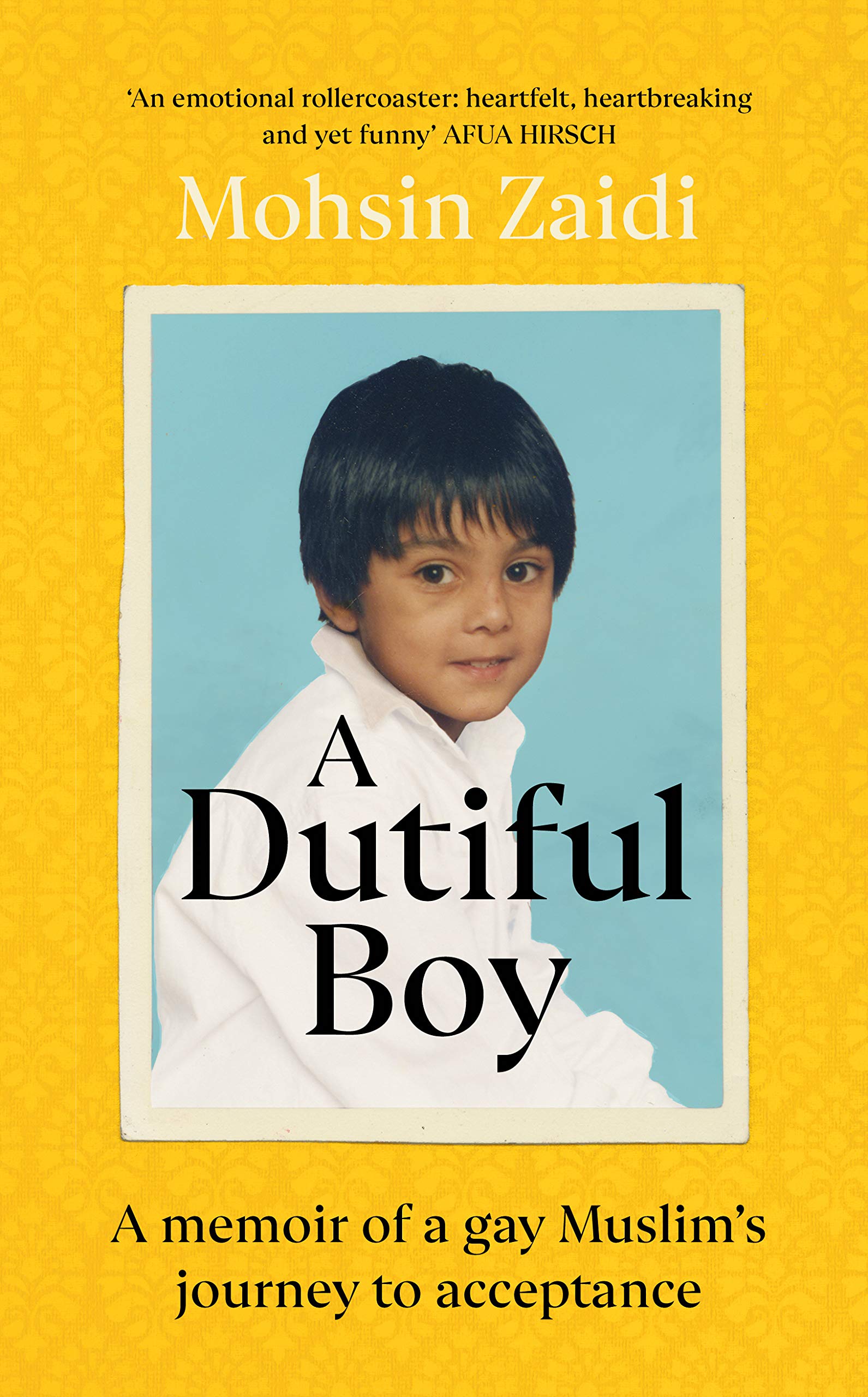 A DUTIFUL BOY
A DUTIFUL BOY
A Memoir of a Gay Muslim’s Journey to Acceptance
by Mohsin Zaidi
Vintage. 280 pages, $17.95
A Dutiful Boy is a story of a boy who is admired in his community so long as he hides his sexuality. Mohsin Zaidi shares what it means to grow up gay in a practicing Shia-Muslim family in present-day England. Of his patriarchal family, Zaidi says: “It was not simply a set of rules … it was an all-encompassing world … [w]ith its own history, its own calendar, its own food, clothes, traditions, books, maths, laws and even its own deviants.” The book recalls Vikram Seth’s A Suitable Boy (1993), which also references Bollywood films and songs, the English language, Nehru, and so on. Zaidi’s family’s fixation on marriage and on the notion of “izzat” (honor) puts the book squarely in the socio-cultural geography of India. His parents’ obsession with how to be good Muslims puts the story in the domain of global Islam and the hostility faced by its practitioners in some locations. Growing up in white England amid searing anti-immigrant and particularly anti-Muslim rhetoric, Zaidi’s struggles as a gay person take on another dimension. At home, his parents ignore his individual aspirations. At school, despite being a bright student, he remains “terrorist scum,” a “Paki cunt.”
Despite his various struggles, Zaidi’s story ends like a Bollywood film. Such an ending would only have been possible in England, not in Islamic Pakistan or even in democratic India. English society may have its imperfections, but, unlike his own family, it allows Zaidi a space to breathe and blossom, making it possible for him to bring home a “suitable” husband and allowing a change in the age-old script of heterosexual marriage.
Lucky Issar
The stories in this collection are all about being gay in the late 1940s and ’50s, and the world they evoke is elucidated fully and convincingly. There are many familiar themes here, such as coming out amid the repression of the surrounding culture. The best stories have a kind of subtle, Chekhovian bite. The opening selection (“A Story of Early Love”), for example, tells of a young gay man who follows the straight romance of a boy he’s attracted to, and ends with the line: “I began to dream up new stories in which I, perhaps, could have a part.” The “perhaps” here is devastating, as the narrator imagines a future world characterized by the type of love currently denied him. Two other standouts in the collection are “The Surprise Hit of 1948,” which memorably depicts the moment when a barber’s son is first pegged as gay by his customers, and “Cream of Mushroom Soup,” which depicts the attempts of two gay men to live and conduct a nonconformist life and relationship against a backdrop of McCarthyism and the Korean War. Other stories in the collection contain similar, wonderful little stabs of truth. Oddly compact in size and content but fully evocative of its era, Before Stonewall is a surprising and satisfying find.
Dale Boyer
In her latest book, acclaimed cartoonist Alison Bechdel explores the personal through the physical. Whether running, biking, or doing martial arts, Bechdel depicts herself exploring the ways in which she has continually turned to sports and exercise throughout her life, from her early exploration of butch æsthetics as displayed by male fitness models to her introduction to lesbian culture through female self-defense. As an author, Bechdel has always explored the psychological underpinnings of her world, beautifully illustrating the physical dimensions of this world as they are experienced. Here she explores the ways in which her creativity, emotional and physical awareness, and queerness have been tied to the physical spaces in which she has moved at various stages in her life.
The narrative runs from the 1960s to the present day and includes all the bumps and turns that one would expect. Frame by frame, we learn about her intimate relationships with family members and lovers as well as her search for the transcendent through physical transformation, as Bechdel uses her body as a conduit to delve deeper into her journey as a person and an artist. This latest memoir is a reflection of the physical, psychological, and emotional journey that she has undertaken. It is a testament to the interconnectedness of mind and body by an author who is intimately aware of the relationship between the corporal and the cerebral.
Michele Kirichanskaya
Martha Shelley was a cofounder of the Gay Liberation Front and president of the New York chapter of Daughters of Bilitis. She earned her stripes by being monitored by the FBI and as a participant and witness to the Stonewall uprisings of June 1969.
She also played a part in the Lavender Menace in the early 1970s. The author of three previous books of poetry, her latest collection stirs up the worlds of nature and revisits Buddhist precepts. Her poems are funny, quirky, consciousness-raising musings. She presents a series of high intensity engagements that take her down new paths: “a raucous chorus over Heard/ become a vee of geese,/ emerges from the mist, flying low/ hilarious as bowling pins with wings/ but each time like a first kiss/ they take my breath away.”
Shelley has purposefully stepped off the activist treadmill. She is currently intent on capturing the enduring and healing properties in nature’s minutiae to find what really matters in the struggles, pleasures, and insatiable lusts for life of every living thing. In this she recalls the pared-down poetry of Mary Oliver. Released from the Wheel is oceanic ebbing and flowing with the full tides of our uncertain times. Shelley’s great appreciation for life’s singing, twittering, and chattering is the reward of closely observing nature. Her poetry is a gathering from a lifetime of lesbian feminism, Jewish activism, and enduring humanism. One comes away from this book feeling uplifted, renewed, and ready to mend this beautiful, broken world we share with each other and with other sentient beings.
Cassandra Langer


